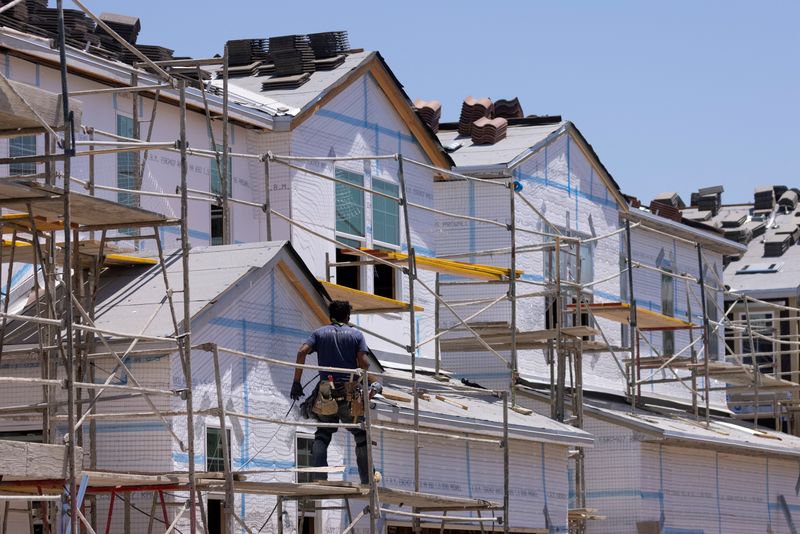By Nupur Anand
NEW YORK (Reuters) - U.S. consumers are still keeping up with their loan payments despite rising costs and a worsening economic outlook, according to executives at the largest U.S. lenders.
While some borrowers whose finances stayed resilient during the pandemic are starting to fall behind on their loan payments, top bankers said.
"The consumer's actually in pretty good shape," said Bank of America (NYSE:BAC) CFO Alastair Borthwick, citing elevated deposits and strong asset quality.
The leader of JPMorgan Chase (NYSE:JPM), the nation's largest lender, also said consumers finances remained resilient.
"Even if we go into recession, they're going with rather good condition, with low borrowings and good house price value still," JPMorgan CEO Jamie Dimon said in an earnings conference call on Friday.
The bank reported record profit in the second quarter as consumer borrowing remained strong, also driving its net interest income to a record.
Profits at Bank of America and Wells Fargo (NYSE:WFC) jumped 19% and 57% in the second quarter, respectively.
Still, some consumers' finances were starting to be stretched.
"Asset quality remains strong and charge-offs continue to normalize, they still remain below pre pandemic levels," Borthwick added.
Bank of America said the rate of credit card charge-offs, or debt owed to a bank that is unlikely to be recovered, stood at 2.6% in the second quarter, well below the pre-pandemic rate of 3.03% in the fourth quarter of 2019.
Consumers with lower credit scores are faring worse, analysts and bankers said.
Credit scoring company, VantageScore, said late last month that subprime and near-prime borrowers were falling behind on their payments, as delinquencies climbed across loan categories.
Auto loan delinquencies surged most sharply, while late payments on credit cards and mortgages increased to a lesser extent, it said.
Rising defaults have also prompted lenders to start increasing their rainy day funds at a time when concerns around the health of the economy remains.
Wells Fargo set aside $1.71 billion in provisions for credit losses in the second quarter, compared with $580 million a year earlier and admitted that consumer net loan charge-offs will continue to gradually increase.
Still, consumers and businesses have healthy balance sheets and their overall credit quality is still strong, its CEO Charlie Scharf said.

U.S. consumer spending fizzled in May as households cut back on purchases. While spending edged up only 0.1%, it remains underpinned by strong wage gains in a tight labor market.
"We're seeing a more cautious consumer, but not necessarily a recessionary one," Citigroup (NYSE:C) CEO Jane Fraser said.